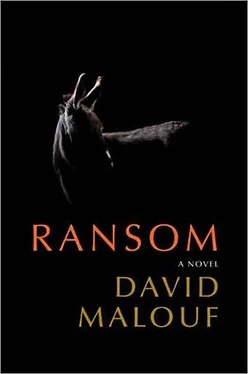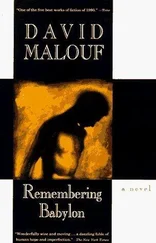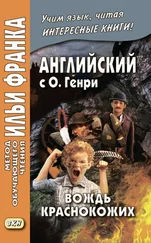‘Sir, you have for the whole of your life been a king. Ordinary desires and needs and feelings are not unknown to you — I know that, you are my father; but you have, you can have, in your kingly role, no part in them — they are not in your royal sphere. And are you now to wring Achilles’ heart by appealing to those very feelings of the ordinary man that it has been the whole business of your life to remain aloof from?
‘I beg you, sir, be patient like the rest of us. Can you really believe that Hector, who was so proud, who loved you and cared so much for your royal dignity, and fought and poured his life out to preserve it, would thank his father for clasping the knees of his killer in a merely human way, and laying all the glory of Troy in the dust? He would weep, my lord, as I do —’ and at this Deiphobus, unable to go on, dashes the tears from his eyes and turns away.
Priam lowers his head. When he raises it again his look is grave but his eyes, for all the power of emotion in him, are dry.
‘Deiphobus, you speak to me as a son, and I am sorry if what I have it in my head to do offends or shames you. I have had a good sixty years now to consider the splendour and limitations of what it is to be a king. You speak, too, as a brother. I know how much you loved Hector, and how deeply affected you have been by the loss of a man we all cherished and depended on. You ask me to stand, as I have always done, at a kingly distance from the human, which in my kingly role, as you say, I can have no part in. But I am also a father. Mightn’t it be time for me to expose myself at last to what is merely human? To learn a little of what that might be, and what it is to bear it as others do? I know I am an old man, feeble in body and ill-equipped to go venturing out at this late date into a world of change and accident. But as you know, I am also stubborn, and I have not survived this long without a certain degree of toughness. Perhaps this —’ and he glances quickly in Hecuba’s direction — ‘is the time to show it.’
Cassandra is there, pale and distracted-looking, only half-attentive. Her brothers turn to her now in the hope that their father, who is fond of the poor deluded creature, will listen to her.
But Cassandra has nothing to say. Her god has withdrawn. He no longer visits and inflames her. Numb with grief for her brother Hector, she feels only a dulled indifference to what is happening around her; even to what is happening, or about to happen, to herself. As if it had already occurred, and too long ago now to be of any consequence. When her brothers look towards her — those brothers who once mocked her searing visions — she shakes her head and remains dumb.
At last, since no one else seems willing to speak, Polydamas comes forward. Not one of Priam’s sons, or even a son-in-law, but one of the wisest of the Trojans.
‘My lord Priam,’ he begins, ‘you know the reverence and great affection in which I hold you. Firstly, on my friend Hector’s account, because I thought of him always as a brother and of you, therefore, as a second father. Even more, because for the whole of my life what I have chiefly cared for is order, and for as long as I have had experience of the world, you have been the great upholder of order among us; none more pious, none more punctilious in what is owed to the gods, but also to us, your subjects, who look to you as the fountainhead of all that keeps Troy civil and just. But that, my lord, is the limit of what we have a right to ask, and all that the gods too can demand. They made you a king. A proper kingliness of spirit and presence is all that they, or we, can require of you, my lord, and all, in these sad times, that you need properly ask of yourself.
‘I beg you, spare yourself this ordeal. Do not, for the affection we all bear you, expose yourself to the hazards of war and of the road, or to the indignities that Achilles and any other Greek who happens along might heap upon you. Be kind to your old age. Relieve yourself of this unnecessary task.’
Priam considers the man. He is pleased with what Polydamas has said. Pleased too that it offers him something to say in return that will make clearer his reasons for what he has determined on.
‘Thank you, Polydamas. You are too generous in your tribute, but I am grateful. What you have to say of order and kingliness does you credit. If I reject your advice, it is not because I do not value it. I do. And I value you , not least because you were my son’s dear friend and I know he loved and listened to you.
‘It is true that the gods made me a king, but they also made me a man, and mortal. Gave me life and all that comes with it. All that is sweet. All that is terrible too, since only what we know we must lose is truly sweet to us. The gods themselves know nothing of this, and in this respect, perhaps, may envy us. But not in the end. Because, in the end, what we come to is what time, with every heartbeat and in every moment of our lives, has been slowly working towards: the death we have been carrying in us from the very beginning, from our first breath. Only we humans can know, endowed as we are with mortality, but also with consciousness, what it is to be aware each day of the fading in us of freshness and youth; the falling away, as the muscles grow slack in our arms, the thigh grows hollow and the sight dims, of whatever manly vigour we were once endowed with. Well, all that happens . It is what it means to be a man and mortal, and as men we accept it. Less easy to accept is what follows from it.
‘One day war comes, and what the moment demands is strength of nerve and sinew, quickness of eye and foot and hand. An old man has no part to play then but that of a bystander or passive looker-on. And if all goes badly, if the citadel falls and the killers come pouring through the streets — men whose blood is a roaring lion in them, who go raging from house to house looking for women and children to destroy, and feeble old men, old bystanders and lookers-on, to run down and slaughter — it will mean nothing then, nothing at all, if one of those feeble old men happens also to be a king. When the dogs claw at one another’s backs in their frenzy to get at his entrails, when they gnaw at the skull and the misshapen feet, and tear without shame at the old man’s private parts, the source of so many noble sons and daughters.
‘One of the chief concerns of a good king is the image he presents, and most of all, as he grows older, the image that other men will keep of him when he is gone. That is what I am concerned with now, in these last days of my kingship.
‘I cannot stop what may be about to occur. That I leave, as I must, to the gods. If the last thing that happens to me is to be hunted down in the heart of my citadel, and dragged out by the feet, and shamelessly stripped and humiliated, so be it. But I do not want that to be the one sad image of me that endures in the minds of men. The image I mean to leave is a living one. Of something so new and unheard of that when men speak my name it will stand forever as proof of what I was. An act, in these terrible days, that even an old man can perform, that only an old man dare perform, of whom nothing now can be expected of noise and youthful swagger. Who can go humbly, as a father and as a man, to his son’s killer, and ask in the gods’ name, and in their sight, to be given back the body of his dead son. Lest the honour of all men be trampled in the dust.’
Priam’s voice breaks and he turns aside to hide his tears. Hecuba’s hand is there to steady him. The rest too are moved. And they see, as Hecuba does, that there is no point in further argument. Foolish as the old man’s plan may be, they can only reconcile themselves and let him have his way.
It is early afternoon now. Priam, already attired in the plain white robe of his vision, with Hecuba beside him and his head nodding a little, is seated under an awning in the open courtyard. He is waiting while Hippothous and Dius, two of the royal princes, supervise the getting ready of a cart. Helenus has been dispatched to assemble the precious objects he will take from his treasury, the cauldrons, tripods, armour and the rest that will make up Hector’s ransom.
Читать дальше












